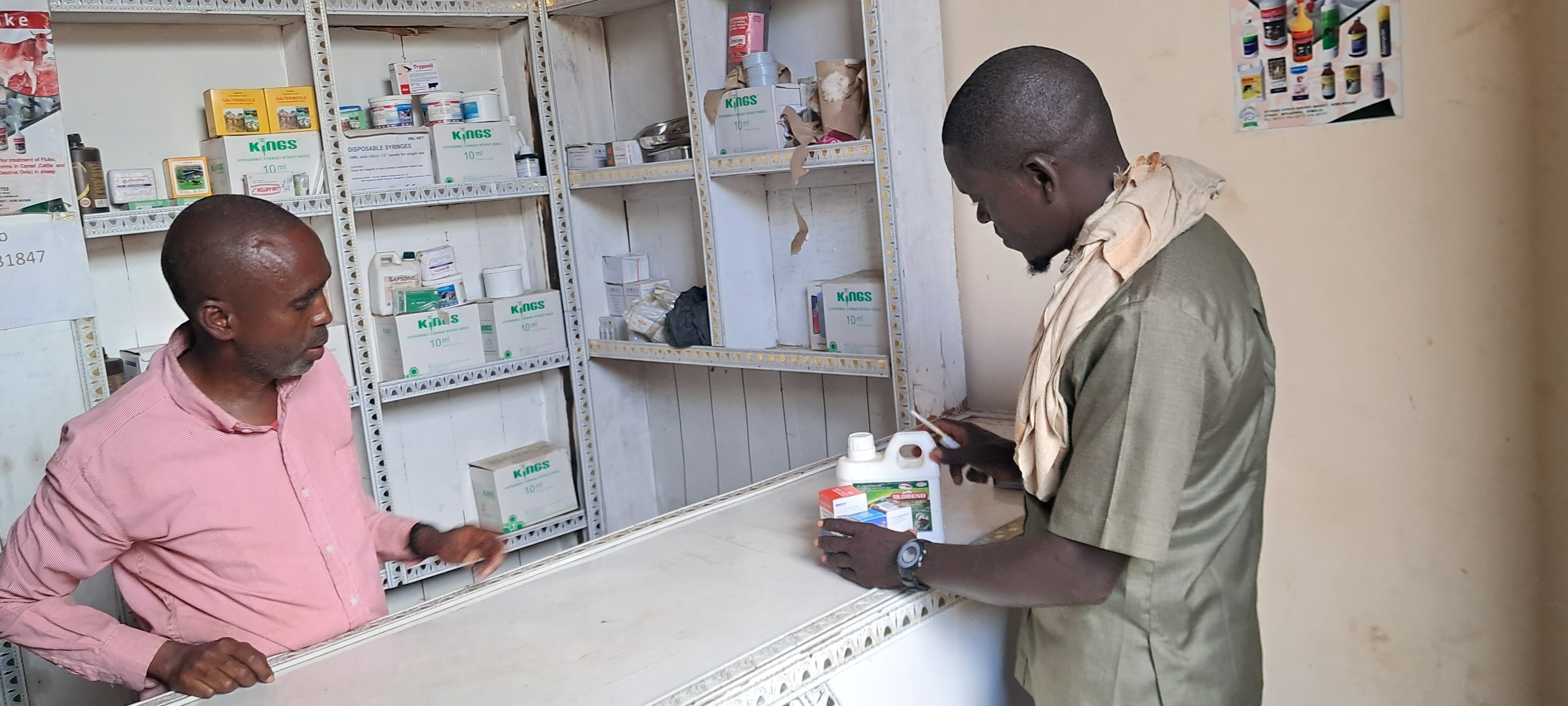17-12-2024 | di COOPI
Somalia. How resilient animal health services are transforming communities
Ali Yusuf Adan, a 41-year-old resident of Bulla Kerow village, is a father of nine children and owns 20 goats, three cows, and four camels. For as long as he can remember, his livelihood, like that of his ancestors, has depended on livestock; the more animals he has, the better off he and his family are.
He states,
I was trained by COOPI in 2017 as a community animal health worker, which helped me learn how to identify common diseases and administer basic treatments. However, my ability to treat sick animals was severely limited. I often had to turn away farmers/pastoralists seeking help because I did not have the necessary medications. This not only affected the animals but also strained my relationship with the community.”
To build resilience among pastoralist communities, COOPI - Cooperazione internazionale, under the mark of “Somali Resilience Program: Consolidating Resilience Gains in Somalia, Phase 5” project thanks to the Swiss Agency for Development Cooperation fund, intervened in Bulla Kerow village in 2024 by strengthening animal health services. They established vital links between Private Veterinary Practitioners (PVPs), Community Animal Health Workers (CAHWs) and private veterinary drug suppliers. Additionally, CAHWs were provided with smart phone gadgets for livestock e-surveillance to improve disease monitoring, and service delivery real-time data collection. Ali was selected as one of the project beneficiaries, enabling him to effectively serve his community and improve animal health outcomes.
I was giving drugs including vitamins, syrup, eardrops and antibiotics. The community highly appreciates my services, for whom I charge $0.5 for small ruminants such as sheep and goats, $0.7 for donkeys, and $0.9 for camels. I was also linked to private veterinary suppliers to obtain essential medications directly from private veterinarians to ensure timely treatment for sick animals. I can now access affordable drugs at a reasonable fee, making healthcare more accessible. I believe I am very fortunate, thanks to COOPI, SomReP, and the donor SDC for providing the resources and support that have transformed my ability to serve my community. Their commitment to enhancing animal health services has improved my skills and access to medications and strengthened the livelihoods of families in Bulla Kerow,”
he attests.
In the Baidoa District, Bay region of Somalia, livestock represents more than just a source of food; it is the cornerstone of the community, deeply woven into cultural identity. Somalia's livestock sector is essential to its economy, contributing 45% to the national GDP. However, climate shocks, disease outbreaks, land degradation, and deforestation threaten livestock health and productivity due to lack of access to veterinary services and medicines. CAHWs play a crucial role in addressing these issues, but many struggled due to limited resources and support, underscoring the urgent need for sustainable solutions.
The project has significantly enhanced the efficiency of animal health services, empowering community members, particularly pastoralists, by eliminating the need for long journeys to seek veterinary care. By establishing connections between CAHWs to private veterinary suppliers and introducing e-surveillance, the initiative has profoundly improved effective access to essential medications and treatments, allowing for timely interventions in cases of illness. This not only fosters a safer environment, with prompt interventions that reduce disease transmission within herds but also protects local livelihoods. Furthermore, the project has led to improved community health, evidenced by a noticeable decline in livestock-related illnesses, which supports food security and economic stability for family’s dependent on their animals.

Ali Yusuf Adan’s journey reflects the power of community-driven solutions in addressing critical challenges in animal health. From a simple CAHW to a beacon of hope for his community, Ali’s story is a testament to resilience, collaboration, and the transformative impact of access to resources. As he continues to serve his community, he remains committed to fostering a culture of care that ensures the health of livestock and, by extension, the well-being of families like his own.
COOPI has been working in Somalia since 1981 and has been part of the Somali Resilience Program (SomReP) consortium since 2012, with which it implements resilience programmes in the Bay and Gedo regions and intervenes in the districts of Baidoa, Dollow and Belet-Hawa. In each intervention, depending on the context, COOPI integrates one or more cross-cutting areas: protection, gender, environment and disaster risk reduction.




 Somalia
Somalia